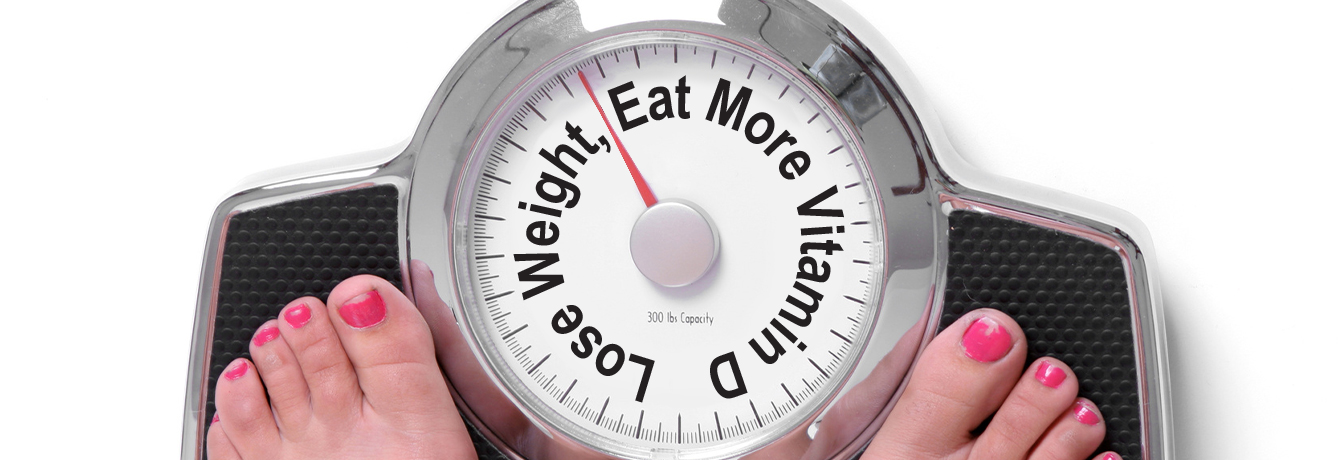Cold weather and shorter days make it harder to get outside and exercise — but they may make weight management more difficult in a subtler way as well: Less sunlight could mean a dip in vitamin D levels. So what? The link between D and dieting may be more significant than you realize.
Indeed, emerging research points to D’s role in regulating fat metabolism. Adding insult to injury, low levels of vitamin D (which is actually a hormone) might interfere with signals sent by another hormone, leptin, which helps suppress appetite and trigger thermogenesis — the conversion of calories to body heat. The impact of D deficiency was observed when 38 overweight subjects of both genders (average age 30) were put on a reduced-calorie diet. Those who had the lowest levels of vitamin D at the outset lost the least amount of weight — and those with higher levels (though still deficient) lost more weight around the midsection.
While higher vitamin D levels appear to help weight loss — losing weight, in turn, helps raise your vitamin D. One study found that women who lost 5% of their body weight enjoyed an 8% lift in vitamin D levels, whereas those who lost 15% of body weight increased their vitamin D levels by a whopping 35%. The relationship between excess weight and vitamin D deficiency has even been observed among children: A study of schoolchildren found that kids with the highest body mass index had, on average, 18% lower vitamin D levels than their normal-weight peers.
Published January 1, 2013



